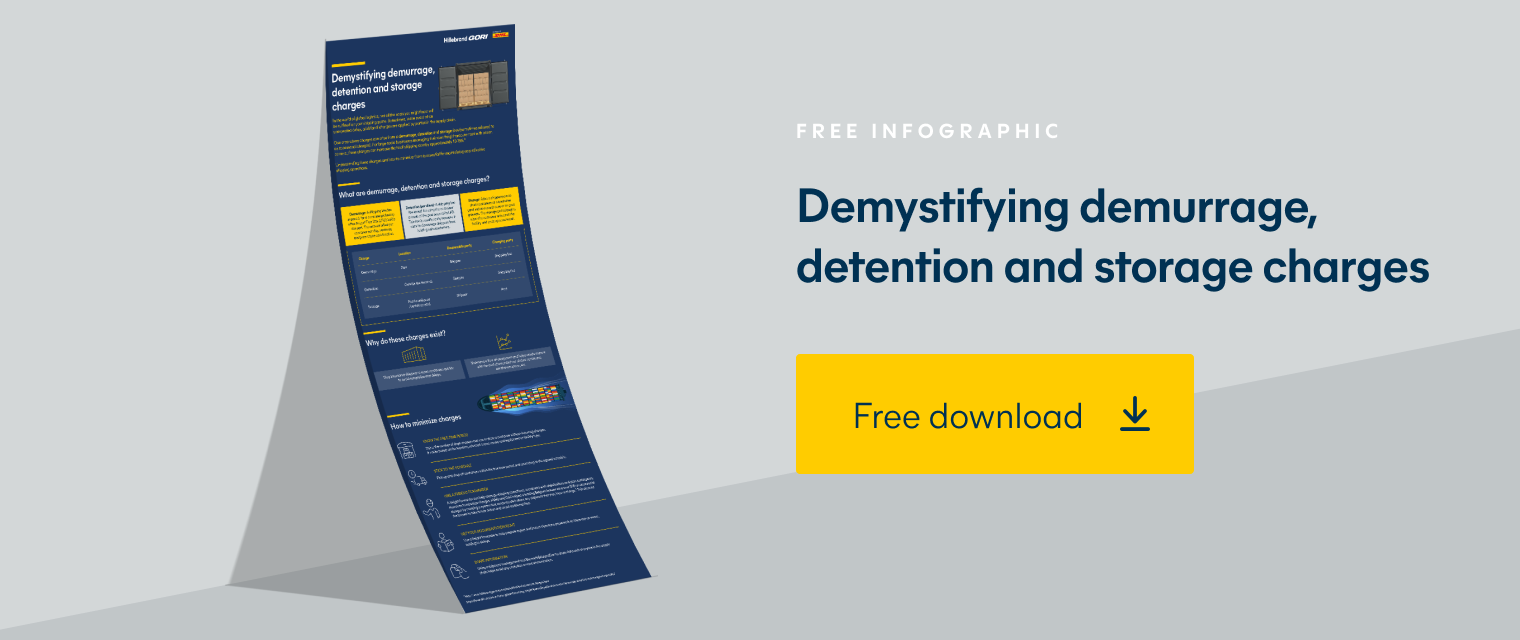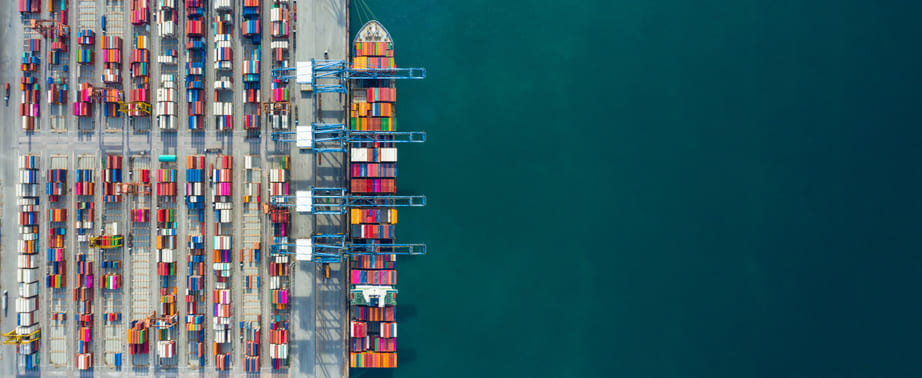Share this post
Get started with customs clearance for wine shipping
As an importer, you will pay duties and taxes on your alcoholic beverages import, but it can be easy to forget that it also costs money to clear the shipment through customs.
To ship wine, beer or spirits internationally, you’ll need a firm grasp of the basics of customs clearance, as well as the specific regulations of your import and export countries. You will need to prepare the necessary customs paperwork required by your destination country, and pay any fees required.
Making mistakes with customs clearance can be costly. In certain circumstances, you could face fines for non-compliance, risk your container being returned or miss out on quotas that could save you money. That’s why it is important to stay up-to-date on the regulations, fees, duties and taxes importers are liable for. Ensuring your freight quote comes with customs brokerage can help you avoid unnecessary delays and costs.
This article will give you a thorough introduction to customs clearance and how it affects your shipments.
What does custom clearance mean?
Customs clearance is the authorization required for all goods to enter or leave a country. It describes the process by which customs authorities inspect, verify, and approve the import or export of goods, ensuring compliance with applicable laws, regulations, and duties before the goods can enter or leave a country's borders.
What is a custom clearance fee?
A custom clearance fee is the charge for the services carried out by customs after you submit your documents. It covers processing and facilitating the movement of goods through customs. The cost of the customs clearance fee may vary depending on the type of goods, their value, and the complexity of the clearance process. It can be a flat rate, or a percentage of the value of the beverage being shipped.
Duties are charges applied to goods that are sold across borders, including wine, beer, spirits, and other alcoholic beverages. Determining the duty owed can be complicated, and although you may receive an estimated duty rate for your shipment, the custom authority will make a final decision on what is owed, based on the Harmonized Tariff System (HTS) codes. Taxes are slightly different; they are fees on goods being brought into a country, such as value-added tax (VAT) and sales tax. Taxes are paid by the importer.
The customs clearance fee requires you to provide accurate information about the value of your goods. Unless a flat rate is applied, the declared value of the goods is used by customs officers to calculate customs duties. The amount you will need to pay for customs clearance varies between countries, as does the way the fee is calculated. The value of the wine, beer or spirit can be calculated based on these methods:
- The purchase price of the beverage
- The value of identical beverages or other products produced in the country you are importing to
- The value of similar beverages or other products produced in the country you are importing to
- The selling price of the beverage
- The production cost of the beverage
Customs clearance fees when shipping within the EU
Generally, if you are sending alcoholic beverages within the EU, your shipment will not need to go through customs clearance before delivery. This means there is no customs clearance fee to pay. However, you may still need to pay excise duties and VAT.
Customs clearance fees when importing to the EU
For EU imports from a non-EU country, your shipment will need to go through customs, which means a customs clearance fee will apply. The customs authorities will decide if the beverage can be imported into the EU, and whether the required import documents have been submitted.
Customs clearance fees when importing to the US
When importing wine, distilled spirits or beer to the US, you will first need to obtain a Federal Basic Importer’s Permit from the Tax and Trade Bureau (TTB). There are no fees for obtaining the permit, but you will be responsible for other applicable Federal excise taxes and duties, as defined in the Internal Revenue Code. For US imports, these are collected by US Customs and Border Protection (CBP). You can find more information on duties on the CBP Duty Rates page, and also by checking for your item on the Harmonized Tariff System (HTS) database.
Other customs clearances costs
You may need to pay additional customs fees, depending on the circumstances. These include:
- Customs exam fee: a fee charged for undergoing a customs exam, which is an inspection of goods chosen by customs officers. It is the importer's responsibility to pay the customs exam fee if their goods are flagged for further inspection. The fee differs based upon what type of customs exam is performed.
- Fines: If there is a problem with your shipment found during an inspection, there may be costs for this too. This can include anything from fines for incorrect ISF filing or incorrect HS code for US imports, to covering the costs of re-exportation if your shipment is denied entry.
- VAT and duties: As well as custom clearance fees, you may need to pay for VAT tax and other customs duties on specific goods when shipping to some countries. Every country has different regulations, so you must be aware of the rules that apply in your import and export countries. Customs duties are calculated based on the value of the goods, the customs tariff and the origin of the goods. VAT is often calculated based on the total cost of goods and the regulations of the import country.
- Additional taxes: There are also often specific regulations, duties and taxes for shipping alcoholic beverages. For example, the US CBP charges a specific rate of duty on wine shipments, at around 1-2 US dollars per liter.
Where customs clearance sits in the shipping process
Customs clearance sits within the larger wine, beer and spirits shipping process. Although the exact process and costs vary depending on the country,
- Ordering
The importer (buyer) places an order with a freight forwarder. If you are placing your order with us, it will be entered into our freight management system which allows our teams to begin the order process. You will be able to view your order in the myHillebrandGori app. - Exporter books collection
The exporter produces the necessary paperwork, and passes the paperwork to the freight forwarder and customs broker, such as Hillebrand Gori. We will then book the collection of your shipment with the exporter, and arrange each step of your shipment’s journey with every carrier needed to deliver your alcoholic beverages. - Broker submits paperwork to customs authority
Your customs broker handles the submission of your paperwork to the relevant customs authority, and manages the clearance process. - Export haulage
We collect your beverages from your supplier. If it is an LCL shipment, it will be taken to one of our warehouses for consolidation with other beverage shipments. If it’s a FCL shipment, it may be taken directly to the origin port. - Origin handling and transportation
Once your shipment has been transported to the departure port or terminal, it will be loaded onto the vessel, train or aircraft that will transport it to its destination. - Customs clearance
At the destination country, Your customs broker, e.g. Hillebrand Gori, will arrange for your shipment to be customs cleared with the relevant authorities. We will also ensure your documentation is correct before your shipment arrives to ensure there are no delays. This includes your customs document, which lists and details the cargo that is being exported or imported. It is lodged with the customs office by the owner of the shipment , which is usually the shipper. - Destination handling and final delivery
After customs clearance, the container is removed from the port. If it‘s an FCL shipment, it will be transported to the consignee. If it’s an LCL shipment, it will be taken to an approved warehouse and deconsolidated, before being delivered to its final destination.
How do Incoterms® affect who pays for customs clearance?
Incoterms® are a set of rules for global shipping set by the International Chamber of Commerce (ICC). Incoterms® assign specific responsibilities to either the seller or the buyer involved in international trade to keep the legal obligations of each party clear for everyone involved. As such, they affect who is responsible for paying customs clearance fees.
Our Incoterm® table summarizes the responsibility allocation of each Incoterm®.
As indicated by the relevant Incoterms®, in most cases the buyer (importer) is responsible for paying the customs clearance fees, and any duty owed on an import.
Simplify customs clearance with Hillebrand Gori
Hillebrand provides customs clearance services worldwide. We can act as your customs broker, taking care of the customs process on your behalf so you can focus on other parts of your business. Get in touch to find out more about how we can help.
Published 29th September 2023, updated 22nd December 2023
It varies depending on several factors, including the type of products shipped, the country of origin and destination and most importantly, if your paperwork is correct. Your paperwork can be submitted prior to them arriving at the port of origin and cleared in time for their scheduled onward journey.
Check the status by contacting your Hillebrand Gori representative or tracking your shipment through our online portal. We will provide you with regular updates and notifications throughout the transport process, so you know exactly where your shipment is at all times.
Usually no. Any container can be subject to a randomized inspection and full out turn of its contents, but this is not common.
While handling your own customs clearance is possible, it can be a complex and time-consuming process. Hiring a reputable logistics provider like Hillebrand Gori, who has extensive knowledge of customs regulations, eliminates the risk of delays or errors in the clearance process.
How can we help your business grow?





